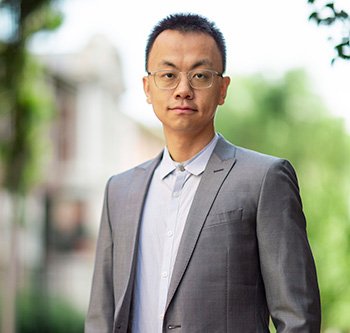An Australian researcher developing technologies to address the world's renewable energy challenges is Australia's nominee for the annual APEC Science Prize for Innovation, Research and Education (ASPIRE).
Professor Tianyi Ma, from RMIT University, is one of up to 21 scientists under 40 years of age from Asia-Pacific Economic Cooperation (APEC) member economies in the running for the annual US$25,000 prize.
Professor Ma's research focuses on chemical reactions and how to make them faster and cleaner.

One of his inventions is a 2D device that can float on the surface of seawater. The device directly converts solar energy into chemical energy to speed up the process of water splitting into hydrogen and oxygen gases.
It's estimated that, without needing solar panels, batteries or water electrolysers, the device can generate green hydrogen at an approximate cost of A$3.70 per kilogram, which approaches the 2030 global production target of A$2.00 per kilogram.
While hydrogen has long been proposed as a clean fuel that could power households, industries, and cars of the future, much of it is still produced by fossil fuels. Professor Ma's prototype device offers a greener alternative and is currently undergoing further trial testing.
Professor Ma is also working on ways to tackle the world's current carbon emissions. He's now in the process of building a device that captures exhausted carbon dioxide and uses an electric current to 'upgrade' it to useful components such as methane and formic acid.
Professor Ma was selected as the Australian nominee for the award by the Australian Academy of Science and the Department of Industry, Science, and Resources.
Award nominees must exemplify a commitment to international science collaboration.
Professor Ma has co-authored more than 200 publications with researchers from APEC countries, showcasing the interdisciplinary nature of his work.
Professor Ma said he was honoured to be chosen as Australia's nominee for the prize.
"I'm quite passionate about my research projects because they combine fundamental science breakthroughs with far-reaching industry impact," he said.
The winner of the 2023 APEC ASPIRE Prize will be announced on 6 August at a ceremony in Seattle, United States.
The two Australian runners-up for the 2023 nomination are:
- Professor Sumeet Walia, RMIT University: for developing technologies to significantly reduce energy consumption and carbon emissions. This includes new technologies to reduce emissions from the computation industry and energy-saving coatings for window glass.
- Associate Professor Debbie Bower, University of New England: for research on the conservation of wetlands and their fauna including a focus on freshwater turtles and disease in frogs.
About the prize
The ASPIRE Prize is an annual award which recognises young scientists from APEC economies who have demonstrated a commitment to both excellence in scientific research, as evidenced by scholarly publication, and cooperation with scientists from other APEC member economies.
The three previous Australian winners of the prize are:
- CSIRO's Dr Jessica Bogard (2021), for developing healthy and sustainable foods for vulnerable people in low- and middle-income countries
- RMIT University's Associate Professor Madhu Bhaskaran (2018) for her work on electronic devices and sensors
- Associate Professor Carissa Klein (2013) for her work on sustainable ocean development.






